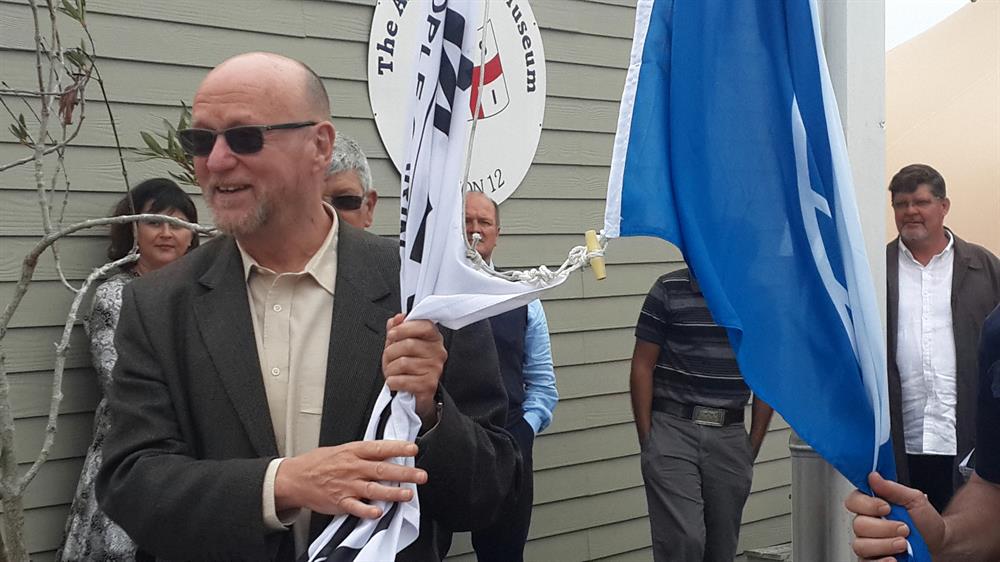Eighty-two South African beaches received Blue Flag status for 2014/15, said Derek Hanekom, the national minister of Tourism, in his keynote address at the Blue Flag launch of the Wildlife and Environmental Society of South Africa (WESSA) on Tuesday, October 7. The ceremony was hosted by the Knysna Municipality on Thesen Islands.
Blue Flag status is given to beaches and reassures local and foreign visitors that the beaches adhere to the standards of a trusted symbol of quality. It is regarded by the World Tourism Organisation as the most well-known international eco-label and gives local and foreign visitors the knowledge that their beaches are clean, environmentally sound and adhere to international safety and other tourism standards.
On the Garden Route, Wilderness Beach again received Blue Flag accreditation and in the Bitou district Robberg Beach, Keurboomstrand, Nature’s Valley Beach and Lookout Beach will fly their Blue Flags. Sedgefield Beach received a pilot Blue Flag, which means that it is striving to achieve this accolade and the Thesen Island Marina is now a fully-fledged Blue Flag marina, after receiving the pilot Blue Flag status in 2012.
This status of excellence is not limited to beaches and marinas alone. The programme also provides environmental accreditation to whale-watching boats as well as commercial and private boats. Four whale-watching cruise boats operating in the Garden Route received their Blue Flag status this year namely, Ocean Odyssey, the Robberg Express, Whale Whisperer and Flings.
The Blue Flag system originated in France in 1985 as a pilot scheme to award French coastal municipalities with a Blue Flag on the basis of criteria covering sewage treatment and bathing water quality. It is a certification by the Foundation for Environmental Education (FEE) that a beach, marina or boat meets its stringent standards.
South Africa started to participate in the programme in 2001 and was the first country outside of Europe to form part of this initiative. According to Hanekom, there are 33 main criteria spanning four aspects of coastal management that have to be met before accreditation will be considered. It includes water quality, environmental education and information, environmental management and safety and services.
In his address, Hanekom mentioned that this prestigious status attracts tourists “and tourism is valuable to any country’s economy". He continued, “People want to come to a place where they feel safe, where they know the water is not polluted. By striving for Blue Flag status, jobs are created and every bit of investment helps our economy." Hanekom said tourism creates far more jobs than the mining sector each year. According to him, 1.4-million jobs have been created through tourism.
Knysna's executive mayor Georlene Wolmarans said in her welcoming address, “We are indeed very privileged to be living here.” She added, “When you are in Knysna you must think, 'what would nature do?'.”
Greg Vogt, the CEO of Knysna Tourism said that he is extremely proud. “The Blue Flag status is not only about how many life guards you have on your beaches, it creates far-reaching, valuable opportunities for tourism.” Vogt commended the Knysna Municipality and especially the municipal manager Lauren Waring for honouring and pursuing this worthy programme.

Derek Hanekom, the national minister of Tourism hoists the Blue Flag at the Wildlife and Environmental Society of South Africa's (WESSA's) national Blue Flag launch held at Thesen Island on Tuesday, October 7
ARTICLE: INGRID LEHMENSICH-BOTHA
'We bring you the latest Knysna, Garden Route news'
















